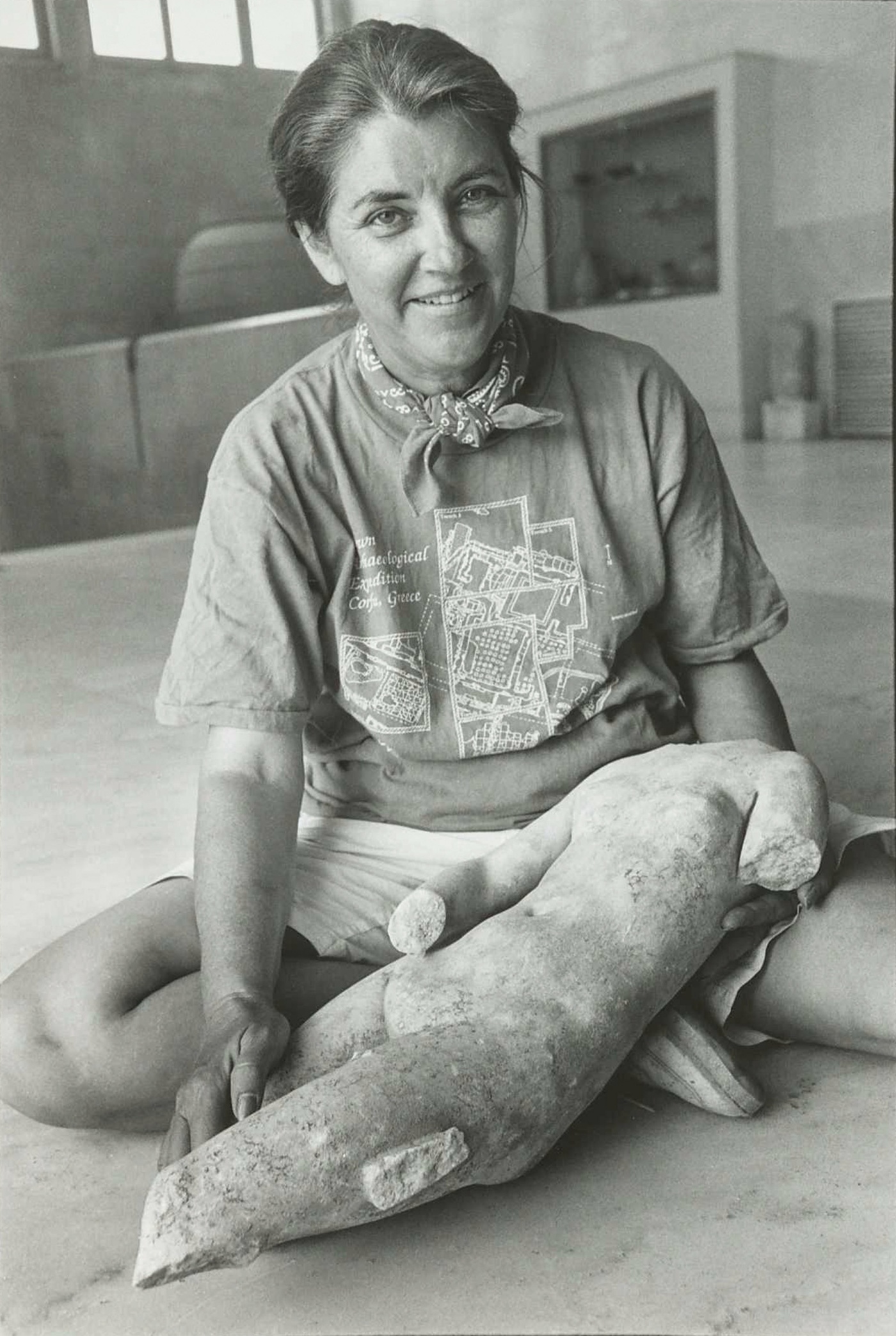 As we celebrate Women’s History Month, it’s important to recognize trailblazing women who have made significant impacts in their fields. One such woman is Martha Sharp Joukowsky, a key figure in archaeology who played a vital role in shaping the study of archaeology at Brown University, inspiring many students, faculty, and colleagues, as well as almost everyone who came into contact with her throughout her long career.
As we celebrate Women’s History Month, it’s important to recognize trailblazing women who have made significant impacts in their fields. One such woman is Martha Sharp Joukowsky, a key figure in archaeology who played a vital role in shaping the study of archaeology at Brown University, inspiring many students, faculty, and colleagues, as well as almost everyone who came into contact with her throughout her long career.
Brown University’s Joukowsky Institute for Archaeology and the Ancient World is named for Martha Sharp Joukowsky and her husband, Artemis A.W. Joukowsky. In 2004, both Joukowskys made it possible for Brown to establish an institute for archaeology, through a substantial donation for that purpose. That institute was subsequently renamed in their honor, to recognize not only their generosity but also both Joukowskys’ significant contributions to Brown and to the discipline of archaeology.
Martha Joukowsky’s academic journey began at Brown, where she earned her Bachelor of Arts degree in 1958. She continued her education at the American University of Beirut, obtaining her Master’s degree in 1972, followed by a PhD from Université Paris 1 Panthéon-Sorbonne in 1982. Her dissertation focused on the prehistory of Western Anatolia and was published as the two-volume work, Prehistoric Aphrodisias, in 1996.
After completing her doctorate, Joukowsky returned to Brown as a faculty member in 1982, where she taught until her retirement in 2002. Joukowsky was dedicated to training future archaeologists through her archaeological fieldwork and as a professor. Former student and current Professor Laurel Bestock fondly remembers Joukowsky from Bestock’s undergraduate days, referring to Joukowsky as an advisor, professor, and, most importantly, a mentor. “She took me seriously from the very beginning. She truly was a force of nature.”
During her time at Brown, Joukowsky conducted fieldwork in Turkey, Italy, Greece, and Jordan, notably excavating the Great Temple at Petra, in Jordan. She also served as President of the Archaeological Institute of America from 1989 to 1993 and founded the AIA’s Near East Archaeology Committee, now known as the Near East Interest Group.

Though Martha Joukowsky passed away in 2022, her legacy continues through the institute that bears her name, along with the artifacts from her excavations that are displayed in Rhode Island Hall. Her contributions continue to inspire countless individuals at Brown and in the world of archaeology.
To learn more about Martha Sharp Joukowsky and her work, explore the following:
- Petra: The Great Temple Excavation from the Joukowsky Institute of Archaeology at Brown University
- Martha Sharp Joukowsky’s Wikipedia Page
- Reconstructing Petra from Smithsonian Magazine, June 2007
- Memorials for Martha Sharp Joukowsky from the New York Times, the Brown Daily Herald, and the Archaeological Institute of America
- “Martha Sharp Joukowsky: Leading by Example and Inspiring a Generation of Female Archaeologists,” a panel discussion held at Brown University on September 23, 2022.
- Martha Sharp Joukowsky on Research Gate
- Martha Sharp Joukowsky on People Pill
- Cohen, G. & M.S. Joukowsky. (ed.) 2004. Breaking Ground: Pioneering Women Archaeologists. Ann Arbor: University of Michigan Press.
- Joukowsky, M.S. 1980. A Complete Manual of Field Archaeology: Tools and Techniques of Field Work for Archaeologists. Englewood Cliffs (NJ): Prentice-Hall.
- Joukowsky, M.S. 1988. The Young Archaeologist in the Oldest Port City in the World. Beirut: Dar el-Machreq.
- Joukowsky, M.S. 1996a. Early Turkey: An Introduction to the Archaeology of Anatolia from Prehistory Through the Lydian Period. Dubuque (IA): Kendall/Hunt Publishing Co.
- Joukowsky, M.S. 1996b. Prehistoric Aphrodisias: An Account of the Excavations and Artifact Studies. Providence (RI): Brown University, Center for Old World Archaeology and Art.
- Joukowsky, M.S. 1998. Petra Great Temple: Brown University Excavations, 1993-1997. Providence (RI): Brown University Petra Exploration Fund.













 As we celebrate Women’s History Month, it’s important to recognize trailblazing women who have made significant impacts in their fields. One such woman is Martha Sharp Joukowsky, a key figure in archaeology who played a vital role
As we celebrate Women’s History Month, it’s important to recognize trailblazing women who have made significant impacts in their fields. One such woman is Martha Sharp Joukowsky, a key figure in archaeology who played a vital role 




